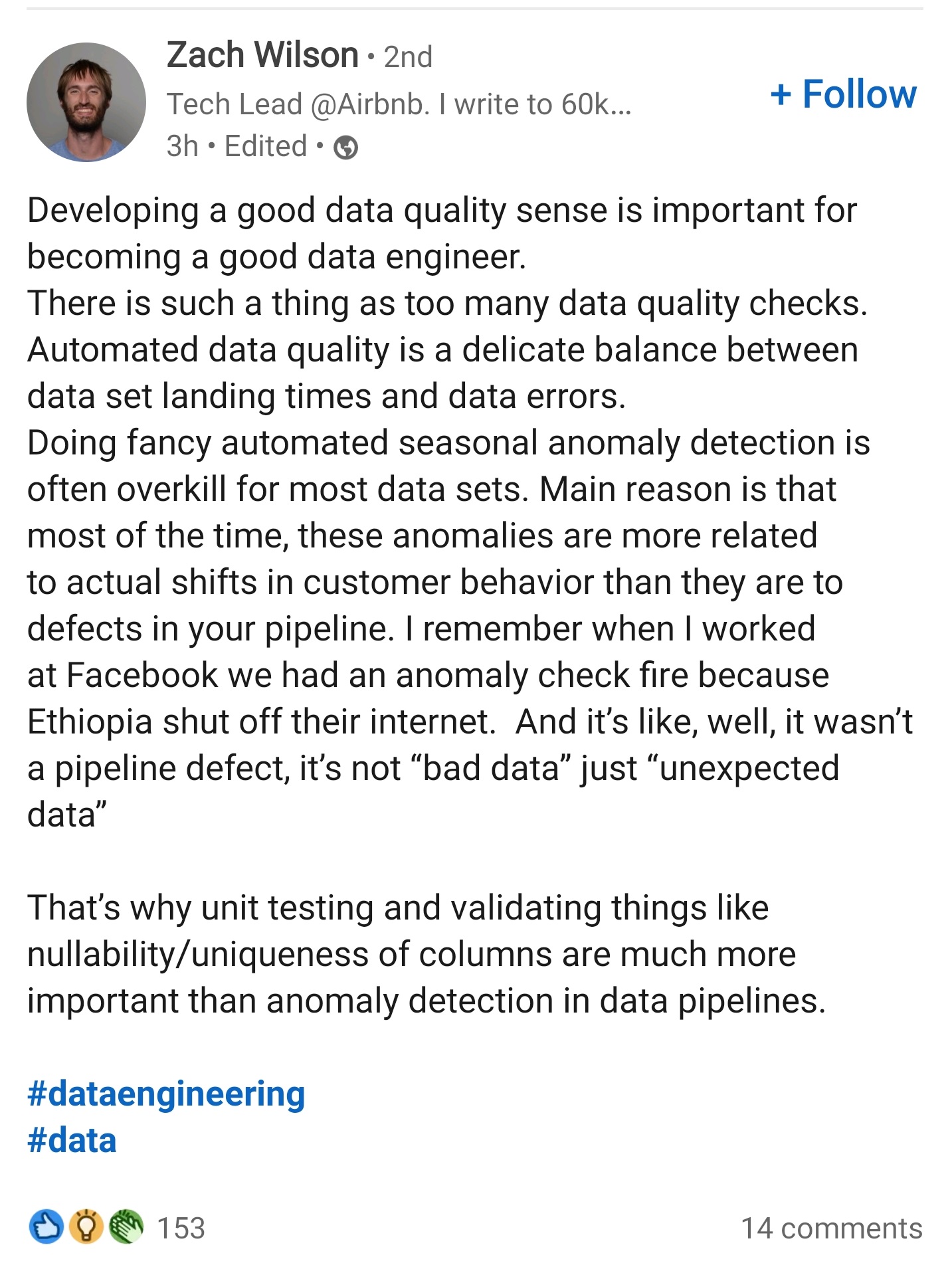Data Quality Should be Tied to Use-Case
A Tale of Two Data Quality Checks
This was a post on LinkedIn discussing the challenges for Data Engineers in deciding what level of Data Quality checks should be implemented:

One of the things that struck me was the last line:
That’s why unit testing and validating things like nullability/uniqueness of columns are much more important than anomaly detection in data pipelines.
To me this speaks to a dichotomy between 2 types of thinking:
- Collecting data for the sake of collecting data
- Collecting data for the sake of a use-case
When considering a use-case like an algorithmic prediction, systemic anamoly detection may be more important than a few null values. Extrapolated more generically I would say that there should always be some sort of Data Quality check that is define with respect to a use-case.
Divide and Conquer
But how would this be executed? It is not feasible or fair to have Data Engineers attempt to know the details of all use-cases - particularly if the Data Engineer is maintaining a corporate data asset.
Therefore it should be considered a part of every Product/Application owner to provide Data Quality checks that are specific to their use-case (statistical or otherwise).
Data Engineering can focus on structural checks as a base-line, but ultimately the Product/Application Owner should be accountable for incremental Data Quality checks that go beyond these basic measures. Product/Data Science teams should staff and plan with this responsibility in mind and Data Engineering organizations should drive transparency in scope and details of what is included in “base” Data Quality assessment.
Implementation
Where should these checks be implemented? There may be a desire to try and push Data Quality checks defined by a specific Product Owner into the Data Engineering organization for ownership as there is always a desire to scale. However this sacrifices agility for the Product Owner and moves accountability out of the Product Team into a central function which may lead to prioritization or communication challenges. Additionally checks for one use-case may not be valid for other use-cases leading to potential issues.
In order to maintain ownership and agility use-case Data Quality checks should be implemented and maintained within the Product scope (i.e. within the ML Pipeline or Application API, etc.) with only base/foundational measures that are truly universal being scaled within centralized Data Engineering ETL pipelines.
